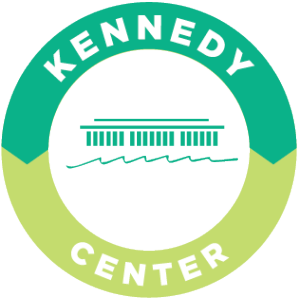
2014 Annual Event
AIMBE’s Annual Event is our premiere conference during which the top leaders in medical and biological engineering across all arenas—academic, industry, government—gather for three days of cutting edge programming, spectacular social events, and a chance to welcome the newest AIMBE Fellows. This year’s Annual Event will be held March 23-25 during the National Cherry Blossoms Festival. After extensive remodeling we will again be at the National Academy of Sciences for the induction of the new class of the College of Fellows. Book your discounted hotel room today at the Hyatt Regency Crystal City.Meeting Focus
AIMBE’s 2014 Annual Meeting will focus on the role of engineering in the future of individualized health care. Session topics will include functional mapping of the human brain and new technologies that are revolutionizing individualized medicine. Critical issues associated with the legal and ethical aspects of these advancements will be examined. Additional sessions will focus on increasing the role of diversity in our collective engineering future and on the young innovators in engineering who are emerging as the next generation of leaders. The Earl Bakken lecture will feature a pioneering engineer who has developed state-of-the-art engineering methods for the treatment of cancer.
Agenda
Sunday, March 23
The Hyatt Regency Hotel
8:00 a.m. – 12:00 p.m.
AIMBE Board of Directors Meeting
1:00 p.m. – 1:50 p.m.
New Fellow Orientation
2:00 p.m. – 2:30 p.m.
Opening Ceremony & President’s Address
President Bill Hawkins
CEO, Immucor
2:30 p.m. – 4:00 p.m.
Pierre Galletti Award Lecture
(…To Be Announced)
Intro by Shankar Subramaniam, Chair, College of Fellows
4:00 p.m. – 5:30 p.m.
Session: Women and Minorities in Science: Career Advancement and Scientific Contributions
Gilda Barabino, Session Chair
Gwendolyn Boyd, President, Alabama State University
- Guillermo Ameer, Professor, Northwestern
-
Rebecca Bergman, VP, Medtronic
-
Paula Hammond, Professor, MIT
-
Victor Rodgers, Professor and Chair, UC Riverside
Unconscious bias, also referred to as implicit bias has received increasing attention for the role that it plays in the career progression of women and minorities. In this distinctively organized session, experts on unconscious bias will give opening presentations that will then be followed by presentations by a panel of AIMBE Fellows who will first serve as discussants and respond to issues raised in the opening presentations and then give highlights of their own research and careers. The session will end with an interactive discussion period to engage participants in consciousness raising dialogue.
5:30 p.m. – 7:30 p.m.
AIMBE Networking Reception
President Bill Hawkins Master of Ceremony
Monday, March 24
The Hyatt Regency Hotel/National Academy of Sciences
7:50 a.m.
First Buses Depart from Hotel – Breakfast provided at National Academy of Sciences
*Last Bus departs from Hotel to NAS at 8:20 a.m.
9:00 a.m. – 10:30 a.m.
Session: Individual Medicine – Role of Engineering
Session Chair Dr. Gilbert Omenn, Michigan
- Dr. Sharon Presnell, CTO of Organovo
-
Dr. Michael Heller, UC San Diego
With the advent of low cost sequencing of individual human genomes and a host of novel technologies for monitoring human health, individualized health is being heralded as the future of medicine. Engineering is doubtlessly the sine qua non of medicine in defining the “digital human” from the point of view of physiology and pathophysiology. This session will introduce the engineering challenges, opportunities and approaches for individualized health. It will be chaired by Dr. Gilbert Omenn, a pioneer in modern medicine serving as a former Executive VP and CEO of the University of Michigan Health System. Other speakers in this session will include, Dr. Sharon Presnell the Chief Technology Officer at Organovo, and a pioneer in 3-D printing technology for human organs. She will be joined by Dr. Michael Heller, Founder of Nanogen and Professor of Bio and Nano Engineering at UC San Diego. Dr. Heller will address the revolutionary point of care diagnostic strategies that are being developed.
10:30 a.m. – 11:00 a.m.
Break
11:00 a.m. – 12:30 p.m.
Induction of the 2014 Class of Fellows
12:30 p.m. – 1:30 p.m.
Luncheon in Honor of New Fellows
1:30 p.m. – 3:00 p.m.
Earl Bakken Distinguished Lecture
Intro by Shankar Subramaniam
- Rakesh K. Jain, Ph.D., Harvard University
3:00 p.m. – 3:30 p.m.
Coffee Break
3:30 p.m. – 5:00 p.m.
Session: Functional Mapping of the Human Brain – The Role of Engineering
Session Chair: Dr. Terry Sejnowski, Salk Institute
- Dr. Andrew Schwartz, Pittsburgh
-
Dr. Todd Coleman, UC San Diego
In April 2013, President Obama launched the BRAIN (Brain Research through Advancing Innovative Neurotechnologies) initiative, which compared to the Human Genome Project and stated that BRAIN will help visualize the brain activity directly involved in vital functions such a seeing, hearing, and storing memories–a crucial step in understanding how to treat diseases and injuries of the nervous system. This innovative sessions builds on discussions between a group of leading neuroscientists and nanotechnologists from around the country. Summing up his excitement over the promise of BRAIN, Dr. Terry Sejnowski of the Salk Institute and Session Chair said, “Imagine how it must have felt to be a rocket engineer when Kennedy said we would reach for the moon. You know there’s an almost unimaginable amount of hard work ahead of you—and yet you can’t wait to get started.” He will be joined by Dr. Andrew Schwartz will discuss the cortical control of neural prosthetics and how engineering can help patients afflicted with paralysis and Dr. Todd Coleman, one of the pioneers of the dermal electronics technology (also known as electronic tattoo technology) who will talk about applications of this novel technology to mapping activities in the human brain.
5:00 p.m.
Buses Return to Hotel
7:30 p.m. – 9:00 p.m.
Private Reception for Members of AIMBE’s President Circle
Hosted by President Bill Hawkins
- Special Guest (Bob Nerem – Founding President of AIMBE)
Tuesday, March 25
The Hyatt Regency Hotel
7:30 a.m. – 8:45 a.m.
Academic Council Meeting
8:00 a.m. – 8:45 a.m.
Industry Council Networking Coffee
Chair Walt Baxter
7:30 a.m. – 8:45 a.m.
CURM Committee Meeting
7:30 a.m. – 8:45 a.m.
WIMBE Committee Meeting
9:00 a.m. – 10:30 a.m.
Session: Young Innovators
Session Chair Ravi Bellamkonda
- Charlie Kemp, Ga Tech
-
Catherine Klapperich, BU
-
Polina Golland, Massachusetts Institute of Technology
The future of engineering in medicine depends critically on the innovations of today and tomorrow. In this session three young innovators will describe the bold steps they are taking in building the future. Catherine Klapperich, Session Chair, has focused on the design and engineering of manufacturable, disposable systems for low-cost point-of-care molecular diagnostics. She will discuss new technologies invented in her laboratory that use microfluidics to identify bacterial and viral targets from several human body fluids. These devices can quantify biomarkers associated with HIV, hemorrhagic fevers, infectious diarrheas, influenza, MRSA and cancer. Another speaker in this session, Polina Golland has pioneered methods for modeling the relationship between anatomy and function with specific applications to the brain. She will discuss the relevance of her work in functional mapping of the human brain pathologies. The third speaker Charles Kemp is a young pioneer in robotics and will discuss his vision for the humanoid robot. All these applications promise to provide the tools of the immediate and long term future in medicine.
10:30 a.m. – 11:00 a.m.
Networking Break
11:00 a.m. – 11:45 a.m.
Session: Regulatory Matters
Alberto Gutierrez, Director, Office of In vitro Diagnostics
Center for Devices and Radiological Health FDA
The advent of the next generation sequencing of the genome and the myriad new innovations in individualized measurements of humans brings several concerns on the regulatory front. Who will have access to the individual’s genome? Will the analysis of the genome be used for lifestyle changes? How will the point-of-care-diagnostics of humans be used to continuously monitor human health? Who will serve as the ombudsman for all the individual human data? How will biomarker discovery impact individualized diagnostics? Will polypharmacy be customized to the individual? These are only few of the most important questions that pertain to regulatory matters relating to individualized medicine. This session will feature speakers who will address these complex questions that go beyond scientific discovery and engineering innovation.
11:45 a.m. – 12:30 p.m.
College of Fellows Business Meeting & Passing of the Gavel
Chair Shankar Subramaniam
Tuesday Afternoon
Optional Congressional Visits (Please contact us at 202-496-9660 if interested).
 AIMBE
AIMBE





